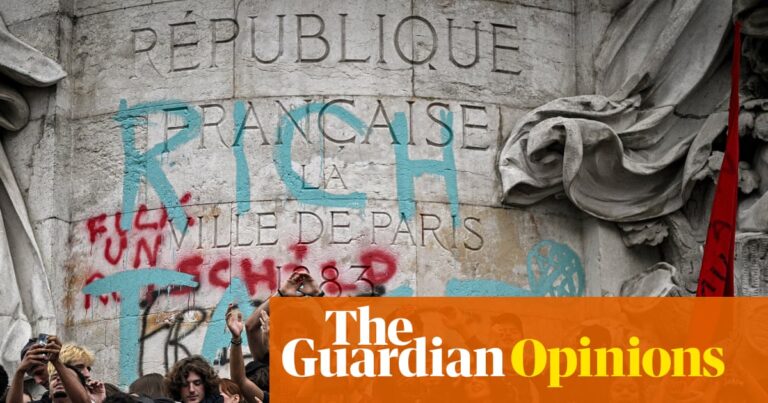Understanding the Recent Protests in France
The recent protests in France are a culmination of over a year of political unrest. This wave of discontent can be traced back to June 2024, when President Emmanuel Macron called for a snap election, leading to a deadlock in the national assembly and challenging the effectiveness of subsequent governments. This week’s protests have added another significant chapter to this ongoing crisis.
The Collapse of Government
In a historic first for the Fifth Republic, the government collapsed following a vote of confidence initiated by Prime Minister François Bayrou. After just nine months in office, Bayrou placed his political fate on the line in a parliament increasingly hostile to the ruling party. The fragmented nature of the assembly became evident when a third of the conservative deputies from Les Républicains chose not to support him, leading to the appointment of Sébastien Lecornu as Macron’s fifth prime minister since May 2022.
Macron’s Disregard for Popular Will
A driving factor behind the protests is Macron’s perceived indifference to public sentiment. The legislative elections last year revealed a shift in political power, with the left-leaning New Popular Front (NFP) coalition emerging as a significant force. However, rather than appointing a prime minister reflective of this shift, Macron opted for defiance, choosing candidates from the right and sidelining the will of the electorate.
Questionable Appointments and Their Fallout
Macron’s decision to appoint Michel Barnier, a veteran politician from Les Républicains with minimal electoral support, escalated the situation. Bayrou’s eventual appointment was marked by a series of public relations missteps that further eroded trust. His lack of empathy in response to crises and propensity for controversial rhetoric alienated many, paving the way for his rapid loss of popularity.
Budgetary Reforms and Public Outrage
Bayrou’s proposed budget cuts provoked widespread anger among low- and middle-income citizens, particularly his controversial suggestions to eliminate public holidays. This came at a time when a Senate report indicated that significant public funds were being allocated to businesses without accountability, amplifying perceptions of inequality as the wealthiest continued to benefit disproportionately under Macron’s administration.
History of Social Unrest
France has a storied history of protest movements, and the current unrest follows a pattern of public opposition to government policies. The gilets jaunes movement in 2018 and recent protests against pension reforms reflect deep-seated frustrations with ongoing social and economic inequalities. The government’s response to these challenges often involved heavy-handed tactics, further inflaming public anger.
Conclusion: The Call for Change
As public sentiment continues to shift dramatically—polls now show that two-thirds of the population wish for Macron to resign—the situation presents a critical juncture for France. The administration’s failure to acknowledge and engage with the electorate highlights the pitfalls of a hyper-presidential system. Political change is essential, driven by the voices of those feeling marginalized and ignored by the current government structure. The mounting pressure from movements like Block Everything serves as a testament to the collective demand for reform in France.
